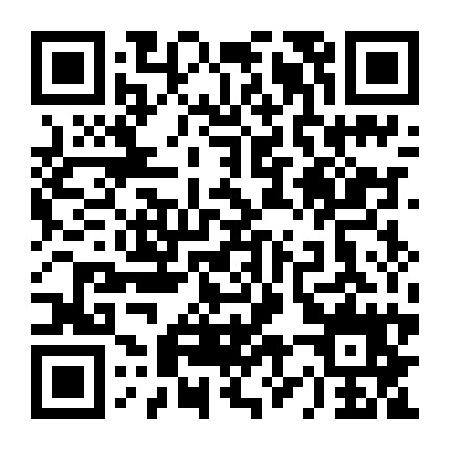Passage Three
There is a new type of small advertisement becoming increasingly common in newspapers classified columns. It is sometimes placed among “situations vacant”, although it does not offer anyone a job, and sometimes it appears among “situations wanted”, although it is not placed by someone looking for a job either. What it does is to offer help in applying for a job.
“Contact us before writing your application,” or “Make use of our long experience in preparing your resume or job history”, is how it is usually expressed. The growth and apparent success of such a specialised service is, of course, a reflection on the current high levels of unemployment. It is also an indication of the growing importance of the resume (or job history), with the suggestion that it may now qualify as an art form in its own right.
There was a time when job seekers simply wrote letters of application. “Just put down your name, address, age and whether you have passed any exams”, was about the average level of advice offered to young people applying for their first jobs when they left school. The letter was really just for openers, it was explained, everything else could and should be saved for the interview. And in those days of full employment the technique worked. The letter proved that you could write and were available for work. Your eager face and intelligent replies did the rest.
Later, as you moved up the ladder, something slightly more sophisticated was called for. The advice then was to put something in the letter which would distinguish you from the rest. It might be the aggressive approach. “Your search is over. I am the person you are looking for”, was a widely used trick that occasionally succeeded. Or it might be some special feature specially designed for the job in view.
There is no doubt, however, that it is the increasing number of applicants with university education at all points in the process of engaging staff that has led to the greater importance of the resume.
71. According to the passage, the new type of advertisements _____.
A. informs job hunters of the chances available
B. promises useful advice to job-hunters
C. divides available jobs into various types
D. informs employers that people are available for work
72. Now a demand for this type of service has been created because _____.
A. there is a lack of jobs available for artistic people
B. there are so many top-level jobs available
C. there are so many people out of work
D. the job history is considered to be a work of art
73. It the past it was expected that first-job hunters would _____.
A. write an initial letter giving their life history
B. pass some exams before applying for a job
C. have no qualifications other than being able to read and write
D. keep any detailed information until they obtained an interview
74. When applying for more important jobs, one had better include in the letter _____.
A. something attractive in one’s application
B. a personal opinion about the organisation one wanted to join
C. something that would offend its reader
D. a lie that one could easily get away with telling
75. The resume has become so important because _____.
A. of an increase in the number of jobs advertised
B. of an increase in the number of applicants which degrees
C. of much more complicatedness of jobs today
D. it is less complicated than other application processes
Passage Four
The newspaper must provide for the reader the facts, unalloyed (纯粹的), unslanted (不偏不倚的), objectively selected facts. But in these days of complex news it must provide more, it must supply interpretation, the meaning of the facts. This is the most important assignment confronting American journalism—to make clear to the reader the problems of the day, to make international news as understandable as community news, to recognize that there is no longer any such thing (with the possible exception of such scribblings (胡乱拼凑的文章) as society and club news) as “local” news, because any event in the international area has a local reaction in manpower draft, in economic strain, in terms, indeed, of our very way of life.
There is in journalism a widespread view that when you embark on interpretation, you are entering rough and dangerous waters, the swirling (令人头晕脑胀的) tides of opinion. This is nonsense.
The opponents of interpretation insist that the writer and the editor shall confine himself to the “facts”. This insistence raises two questions: What are the facts? And: Are the bare facts enough?
As to the first question, consider how a so-called “factual” story comes about. The reporter collects, say, fifty facts, out of these fifty, his space allocation being necessarily restricted, he selects the ten which he considers most important. This is Judgment No.1. Then he or his editor decides which of these ten facts shall constitute the lead of the piece. This is Judgment No.2. Then the night editor determines whether the article shall be presented on page one, where it has a large impact, or on twenty-four where it has little. Judgment No.3.
Thus, in the presentation of a so-called “factual” or “objective” story, at least three judgments are involved. And they are judgments not at all unlike those involved in interpretation, in which reporter and editor, calling upon their research resources, their general background, and their “news neutralism,” arrive at a conclusion as to the significance of the news.
The two areas of judgment, presentation of the news and its interpretation, are both objective rather than subjective processes—as objective, that is, as any human being can be. (Note in passing: even though complete objectivity can never be achieved, nevertheless the ideal must always be the beacon on the murky news channels.) If an editor is intent on slanting the news, he can do it in other ways and more effectively than by interpretation. He can do it by the selection of those facts that prop up his particular plea. Or he can do it by the play he gives a story-promoting it to page one or demoting it to page thirty.
76. The most appropriate title for the passage would be _______.
A. Everything Counts B. Three Judgments
C. Interpreting the News D. Choosing Facts
77. A reporter selects ten out of fifty available facts because _______.
A. his editor is prejudiced B. space is limited
C. he wants to simplify a complex story D. the subject is not important
78. It can be inferred that the author thinks, in writing a factual story, the writer _______.
A. must use judgment B. should limit himself to the facts
C. should make the story interesting D. should slant (歪曲) the story
79. The least effective way of “slanting” news is by _______.
A. selection B. ignoring it
C. focusing on local news D. interpretation
80. Placement of a story on page one or page twenty-four will control its ....
A. impact B. accuracy
C. relative importance D. neutralism
考博必备!历年真题及答案
考博精品好课,就选新东方!

 资料下载
资料下载
【必看】考博英语词汇10000例精解
发布时间:2020-09-02关注新东方在线服务号
回复【10000】免费获取
医学考博英语作文核心基础词汇整理
发布时间:2020-04-15关注新东方在线服务号
回复【医学考博】获取
医学考博英语阅读理解练习资料
发布时间:2020-04-15关注新东方在线服务号
回复【医学考博】获取
法学考博英语高频词汇word版
发布时间:2020-04-15关注新东方在线服务号
回复【医学考博】获取
医学博士英语统考真题及解析
发布时间:2019-12-26关注新东方在线服务号
回复【考博真题】获取
全国医学博士外语统一考试真题
发布时间:2019-12-26关注新东方在线服务号
回复【考博真题】获取
中科院考博英语复习备考实战经验分享
发布时间:2019-12-26关注新东方在线服务号
回复【考博经验】获取
中科院考博英语真题练习资料
发布时间:2019-12-26关注新东方在线服务号
回复【考博真题】获取

关注新东方在线服务号
关注新东方在线服务号,
免费获取考博必看干货资料

 推荐阅读
推荐阅读
考博英语写作类型:对立观点式 考博英语是考博中重点考察的科目,想要更好的拿到高分成绩,对于同学来说,大家在实际的备考中,需要更
来源 : 网络 2025-05-14 17:39:10 关键字 : 考博英语写作
考博英语写作类型:反面话题 考博英语是考博中重点考察的科目,想要更好的拿到高分成绩,对于同学来说,大家在实际的备考中,需要更全面
来源 : 网络 2025-05-14 17:38:50 关键字 : 考博英语
考博英语写作类型:反面现象批评型 考博英语是考博中重点考察的科目,想要更好的拿到高分成绩,对于同学来说,大家在实际的备考中,需
来源 : 网络 2025-05-14 17:37:56 关键字 : 考博英语
考博英语写作类型:不同观点列举型 考博英语是考博中重点考察的科目,想要更好的拿到高分成绩,对于同学来说,大家在实际的备考中,需
来源 : 网络 2025-05-14 17:37:35 关键字 : 考博英语
考博英语写作类型:阐述主题型 考博英语是考博中重点考察的科目,想要更好的拿到高分成绩,对于同学来说,大家在实际的备考中,需要更
来源 : 网络 2025-05-14 17:37:17 关键字 : 考博英语写作类型


 考博好课推荐
考博好课推荐
基础薄弱,备考迷茫,送纸质资料
价格 : ¥2280元
资深教师,教学简明,直接有效!
价格 : 0元
 资料下载
资料下载
关注新东方在线服务号
回复【10000】免费获取
关注新东方在线服务号
回复【医学考博】获取
关注新东方在线服务号
回复【医学考博】获取
关注新东方在线服务号
回复【医学考博】获取
关注新东方在线服务号
回复【考博真题】获取
关注新东方在线服务号
回复【考博真题】获取
关注新东方在线服务号
回复【考博经验】获取
关注新东方在线服务号
回复【考博真题】获取

 阅读排行榜
阅读排行榜
 相关内容
相关内容